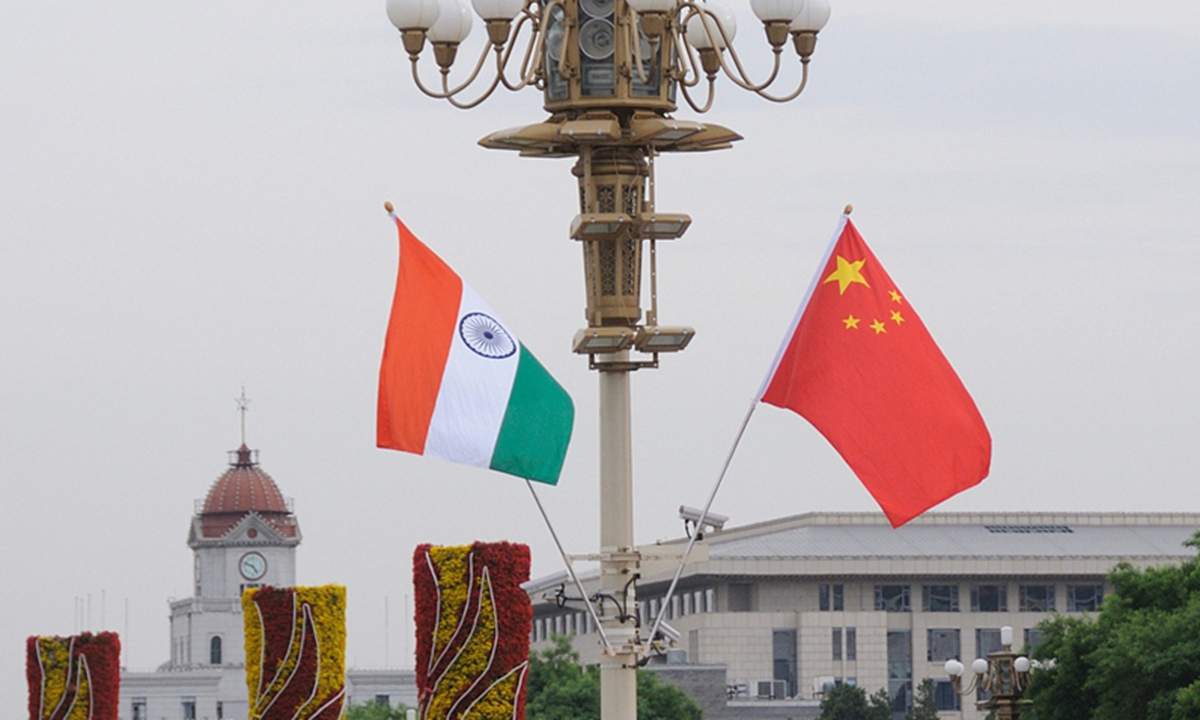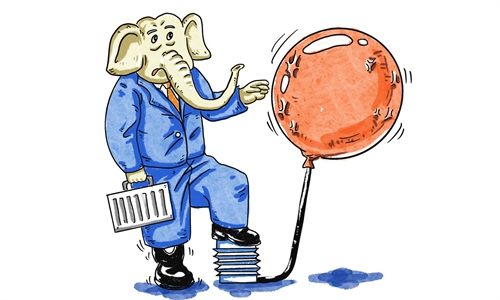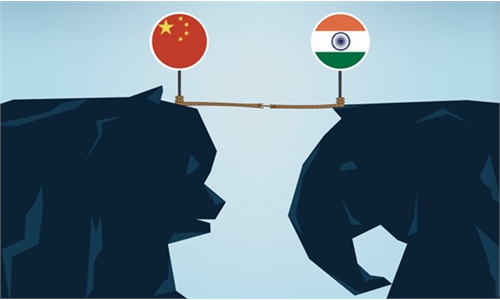
Photo: VCG
Despite the recent unfriendly attitude from India toward Chinese products and companies, China has thus far shown considerable restraint in the realm of economics, which should by no means be mistaken as weakness.
Following a deadly border clash between Chinese and Indian soldiers, there have been calls from some Indian anti-China groups for a boycott of Chinese goods, with large numbers of followers promoting such hostility on India's social media.
The Indian government has also taken some unfriendly measures against Chinese companies since the outbreak of the COVID-19. In April, India amended its foreign direct investment policy to tighten scrutiny over foreign investments from countries sharing a boundary with India, a move that seemingly targets Chinese investments.
By contrast, the Chinese side hasn't taken any similar antagonistic move toward India on an economic level. Such a reaction could lead to the misperception that China is on the wrong side or that it is weak in the face of India.
That the Chinese people are not boycotting Indian goods in the same way that Indians are boycotting Chinese products is a reflection of the Chinese people's confidence in their own economic strength. It is difficult to find representative Indian goods in the Chinese market. That, to a certain extent, reveals the disparities in size and influence between the two economies.
It is because of this economic gap and a complementary bilateral trade structure that China and India should promote economic cooperation rather than escalate their confrontation.
While China has not struck back at India economically, that doesn't mean it doesn't dare to do so. China's restraint is down to the fact that it still retains the willingness to maintain stable economic and trade relations with India, and confusing politics with economic issues will only escalate the tensions and complicate the situation further. We sincerely hope such restraint will be valued and echoed by the Indian side.
The border dispute has made it clear that China neither wants to start nor involve itself in conflicts, but it is not afraid when it comes to territorial issues. The same is true of economic issues. China is now the world's second-largest economy but it will never bully the weak. However, it doesn't mean China dare not fight back if India fires the first shot and starts an economic war.
China has the power to hurt India and will use that power if India fires the first shot.
Extreme anti-China sentiment needs to refrain from putting more pressure on the Indian government to force New Delhi to take a tough stance against China, as the deterioration of bilateral ties is the last thing both the two countries want to see. Efforts from both sides are required to maintain calm and restraint in the current situation. Only then will both countries be able to maintain bilateral economic and trade ties and to endure this difficult period.



